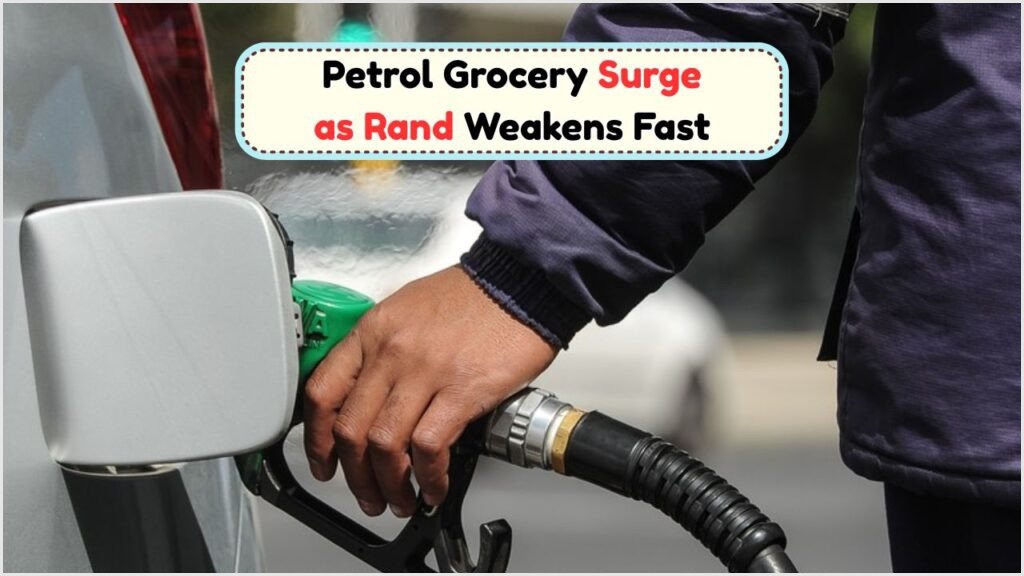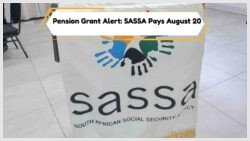Rand Plummets to R18.23 per Dollar: Amidst the backdrop of a struggling global economy, the South African rand has faced significant depreciation, dropping to R18.23 against the US dollar. This decline is alarming for many South Africans as it coincides with the August inflation report, which highlights an increase in household expenses. The weakening rand is not just a number; it affects everyday life, from grocery prices to international travel expenses. With inflationary pressures boiling, South African households are bracing for a challenging period as the cost of living continues to rise. Economic experts are closely monitoring these developments, emphasizing the need for strategic fiscal policies to stabilize the local currency and curb inflation’s impact on the economy.
Understanding the Rand’s Decline Against the Dollar
The recent depreciation of the rand to R18.23 per dollar raises questions about the factors contributing to this economic shift. One of the primary reasons is the ongoing global uncertainty, which has led to fluctuating investment patterns and a loss of confidence in emerging markets. South Africa, in particular, is experiencing a combination of domestic and international challenges that are impacting its currency value. Domestically, political instability and energy crises have created an unstable economic environment. Internationally, the US dollar’s strength, driven by the Federal Reserve’s monetary policy, is putting additional pressure on the rand. As South Africa grapples with these economic hurdles, the government and financial institutions are urged to implement measures that can help stabilize the currency and restore investor confidence.
- Global economic uncertainty
- Political instability in South Africa
- US Federal Reserve policies
- Energy crises affecting local industries
Impact on South African Households
 Discover the Fastest Way to Unlock NSFAS Funds: Thousands Swear by This Proven Appeal Format!
Discover the Fastest Way to Unlock NSFAS Funds: Thousands Swear by This Proven Appeal Format!
| Category | Impact | Percentage Increase | Remarks |
|---|---|---|---|
| Food Prices | Increase | 10% | Basic commodities affected |
| Fuel Costs | Increase | 15% | Imported oil dependency |
| Electricity Bills | Increase | 12% | Load shedding impacts |
| Transport Fares | Increase | 8% | Higher operational costs |
| Rent | Stable | 0% | Fixed-term leases provide stability |
| Clothing | Increase | 5% | Imported goods |
| Healthcare | Increase | 7% | Medical supplies costs |
| Education | Increase | 6% | Rising operational expenses |
August Inflation’s Role in Rising Costs
The August inflation report indicates a worrying trend for South African consumers as it highlights the rising costs across various sectors. Inflation has been driven by several factors including increased fuel prices, higher utility rates, and the depreciation of the rand. This ripple effect has made everyday goods and services more expensive, squeezing household budgets further. The increase in fuel prices, for example, not only affects transportation costs but also impacts the cost of goods due to higher logistics expenses. Coupled with rising electricity bills, many households find themselves struggling to maintain their standard of living. The South African Reserve Bank is tasked with balancing inflation control with economic growth, a challenging task given the current economic climate.
- Increased fuel and energy costs
- Higher logistics and transportation expenses
- Impact on consumer goods prices
Strategies for Coping with Rising Household Costs
With household expenses on the rise, South Africans are seeking ways to manage their budgets effectively. There are several strategies that can help mitigate the impact of inflation on personal finances. Budgeting becomes crucial in these times, allowing families to prioritize essential expenses and cut back on non-essential spending. Additionally, exploring alternative energy sources, such as solar power, can reduce reliance on the grid and help lower electricity bills. Many South Africans are also turning to local products to avoid the costs associated with imported goods. Financial advisors recommend reviewing subscriptions and memberships to see where savings can be made. Furthermore, community support systems, such as cooperative buying or local exchange trading systems, can offer relief and foster solidarity during tough economic times.
- Prioritizing essential expenses
- Exploring alternative energy options
- Buying local products
Government Measures to Address Economic Challenges
In response to the economic challenges posed by the weakened rand and rising inflation, the South African government is taking steps to stabilize the economy. These measures include revisiting fiscal policies to ensure they are conducive to economic growth while controlling inflation. The government is also focusing on enhancing energy security, which is critical for reducing the impact of load shedding on businesses and households. Additionally, initiatives are being introduced to attract foreign investment, thereby boosting the rand’s value. There is also an emphasis on supporting local industries to reduce dependency on imports. These efforts aim to create a resilient economic environment that can withstand global fluctuations and provide a buffer for South African citizens against financial uncertainties.
- Revisiting fiscal policies
- Enhancing energy security
- Attracting foreign investment
- Supporting local industries
- Reducing import dependency
Long-term Economic Outlook for South Africa
| Year | Projected Growth | Inflation Target | Rand Value (USD) |
|---|---|---|---|
| 2023 | 1.2% | 4.5% | R18.00 |
| 2024 | 1.5% | 4.2% | R17.50 |
| 2025 | 2.0% | 4.0% | R17.00 |
| 2026 | 2.5% | 3.8% | R16.50 |
| 2027 | 3.0% | 3.5% | R16.00 |
Frequently Asked Questions
What causes the rand to weaken?
Various factors can lead to the rand’s depreciation, including global economic instability, domestic political issues, and changes in interest rates.
How does a weak rand affect inflation?
A weaker rand can lead to higher inflation as the cost of imported goods and services rises, affecting overall consumer prices.
 August 17, 2025: R1,250 Foster Child Grant Payout Begins – Ensure You Receive Your SMS Alert!
August 17, 2025: R1,250 Foster Child Grant Payout Begins – Ensure You Receive Your SMS Alert!
What can individuals do to mitigate the impact of inflation?
Individuals can adjust their budgets, prioritize essential spending, and explore cost-saving measures like using alternative energy sources.
What steps is the government taking to stabilize the rand?
The government is revising fiscal policies, enhancing energy security, and promoting foreign investment to stabilize the currency.
Is there a positive outlook for South Africa’s economy?
While challenges remain, the long-term outlook includes gradual economic growth and stabilized inflation rates, provided strategic measures are implemented effectively.
How does Rand depreciation impact South Africa's inflation and household expenses?
It increases costs and causes alarm due to rising inflation.
How does the August inflation rate correlate with the plunging Rand value?
Rising inflation reflects weakening Rand's impact on household expenses.




